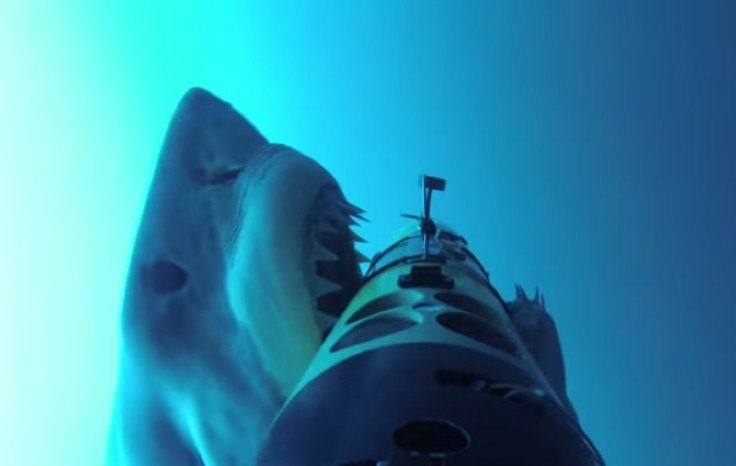Shark Vs Drone: 'SharkCam' Captures First-Ever Close-up of Great White's Lethal Bite
An underwater drone has captured incredible footage of the bite of a great white shark, revealing the power behind the creature's attack.
The Woods Hole Oceanographic Institution, based in Massachusetts, submerged a five-foot-long autonomous vessel equipped with six GoPro cameras into shark-infested waters off the coast of western Mexico, to observe the behaviour of tagged marine animals.
One shark took a particular interest in the yellow REMUS SharkCam, and launched an attack on the drone.
According to National Geographic, sharks have electrosensory organs called ampullae of Lorenzini, which help them locate prey - which explained why the shark attacked the meatless metal vehicle in the water.
"White sharks are notorious for biting metal... objects that are emitting a strong electrical field," Gene Helfman, professor emeritus at the University of Georgia in Athens, told the magazine.
"It must have been giving off some pretty damn delicious signals to stimulate them to not only bite once, but roll their eyes and chomp several times."

Roger Stokey, a senior engineer at WHOI, told The Globe he was on the beach when the shark attacked the robot.
"Hitchcock would have been very proud," he said. "We had a vague notion something was going on. We were absolutely dumbfounded. We thought it was a machine and the sharks would have had no interest. There are a lot of fish that size down there. Clearly they thought it was something good to eat.
"If this was a seal, it would have bled out," he added. "But they couldn't kill SharkCam. I do not understand how that vehicle survived."
The drone can dive up to 100m deep and was deployed as part of research sponsored by the Discovery Channel, analysing the predatory habits of sharks around Mexico's Guadalupe Island.
The footage, which was taken in 2013, has been released ahead of world shark week which begins on 10 August.
The SharkCam has allowed viewers to observe what happens during a shark attack from a safe distance.
"Almost all of our observations of white sharks attacking anything occur at or near the surface," Greg Skomal, a scientist who has studied sharks for 30 years, told ABC News.
"Here we have observations that are occurring down at 300 feet deep. That's never ever been seen before."
Having survived the attack, the robot is now being used to study other marine life such as sea turtles.
© Copyright IBTimes 2025. All rights reserved.






















